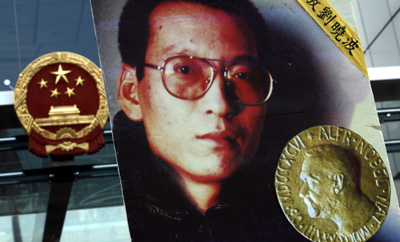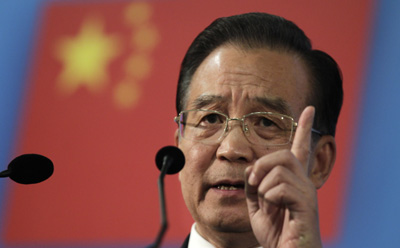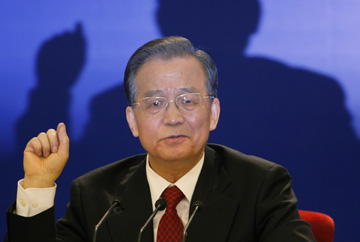China
2010
Internet Blotter
Microsoft allows users to turn on https by default in Hotmail, but it’s still couched in warnings. Meanwhile, Access starts its own global campaign for https to be turned on for the most visited websites. Thai censorship, originally aimed at a few hundred domains, now covers over 250,000 websites. China “unpublishes” previously approved online articles…

That Nobel invite? Mr. Malware sent it
This weekend, staff at CPJ received a personal invitation to attend the Oslo awards ceremony for Nobel Peace Prize winner Liu Xiaobo. The invite, curiously, was in the form of an Adobe PDF document. We didn’t accept. We didn’t even open the e-mail. We did, however, begin analyzing the document to see was really inside…
Internet Blotter
Turkey lifted its ban on YouTube and then re-asserted it within the same week. Digital technology is helping get news out of North Korea. Small digital cameras and tiny SD memory cards make it easier to smuggle images out. In China, meanwhile, Amazon’s Kindle 3G e-reader is reportedly being used to get the news in.…
Internet Blotter
A powerful advocate for press and Internet freedom, Persephone Miel sadly passed away in June. The Pulitzer Center, in partnership with Internews, has launched a memorial fellowship in her name. How the Great Firewall of China breaks the global Internet: stories of Chinese re-routing and censorship affecting services in Chile, the US, and even the…
Use your Blackberry to map global surveillance
The University of Toronto’s Citizen Lab has announced a research project to analyze the global infrastructure of Research In Motion, maker of the BlackBerry. It’s looking for BlackBerry users from any country to take part–especially those in the United Arab Emirates, Saudi Arabia, India, Indonesia, Russia and China. All of these countries have at some point…
Internet Blotter
Omid Memarian gives insight into the Iranian hardliner in-fighting that led to “blogfather” Hossein Derakhshan’s arrest and sentencing.Pakistan blocks Facebook, but doesn’t block militant jihadi sites.What happened when the authorities shut down the Internet in China’s Xinjiang province.”Deleted” Facebook photos can stay available for years (from the excellent Ars Technica, now banned in Iran).Quote of…
Video: Newsroom confrontation in China
A local TV news outlet shows a confrontation between BaWang International representatives and journalists at the National Business Daily’s Shanghai bureau over the paper’s coverage. The video was posted to the Chinese video-sharing website 56.com. National Business Daily responded assertively to the confrontation, eliciting an apology from BaWang. Read more about Chinese journalists defending their colleagues…

In China, more calls for media freedom
Today, members of China’s Communist Party Central Committee met in Beijing to open a three-day discussion on the country’s next five-year development plan. And while they’re unlikely to openly debate a recent letter by 23 senior Party members, which called for sweeping reforms of China’s media censorship policies, it will certainly be in the air.
Communist Party elders urge end to China’s censorship
Twenty-three senior Communist Party members have published a letter calling for sweeping reforms of China’s media censorship policies. “Our core demand is that the system of censorship be dismantled in favor of a system of legal responsibility,” the letter said, according to an English translation by Hong Kong University’s China Media Project. Widely distributed by e-mail and posted…
